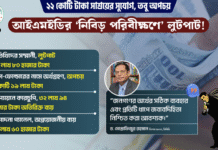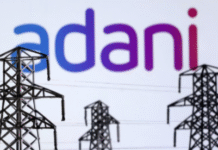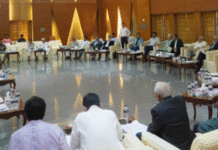Victory Day and citizens’ rights
 Today is Victory Day. On this day in 1971, the Pakistani armed forces surrendered, and our liberation war culminated in victory. During the nine months that preceded this day, three million people gave their lives for the country. We pay deep respect to those martyred souls. We recall the father of the nation Bangabandhu Sheikh Mujibur Rahman who inspired people from all walks of life to join the struggle for freedom.
Today is Victory Day. On this day in 1971, the Pakistani armed forces surrendered, and our liberation war culminated in victory. During the nine months that preceded this day, three million people gave their lives for the country. We pay deep respect to those martyred souls. We recall the father of the nation Bangabandhu Sheikh Mujibur Rahman who inspired people from all walks of life to join the struggle for freedom.
The Liberation War is the most glorious chapter of our history. This war united us towards one common goal. Our main objective was to bring an end to the colonial Pakistani rule. That objective was fulfilled on 16 December. The second objective was to establish democracy and equality, where there would be no religious, racial or communal discrimination.
Every year on Independence Day and Victory Day, we are reminded of the spirit and the commitment of the liberation war. It is a time for introspection, of what we have achieved over the past 48 years and what we have failed to achieve.
Bangladesh has achieved a lot in the socioeconomic sense. The country, once facing food paucity, is now self-sufficient in food production. Literacy rates have gone up, poverty rates have fallen. Healthcare has expanded. Average income and life expectancy has increased. The annual growth rate has exceeded 8 per cent, which has not been possible for many developing countries.
However, on the flip side, the gap between the rich and poor has increased. The democratic institutions are crumbling. We have failed to achieve rule of law in the true sense. Women have been empowered, yet there is widespread violence against women. If any one of the three pillars of state – the legislative, executive and the judiciary – is weak, the very foundation of the state is weakened.
Even though a fair election does not necessarily guarantee true democracy, there is no alternative to bring in a government through elections to meet the people’s aspirations. Political parties have experimented a lot with elections, but have not come up with a system that ensures the people’s right to vote. After ensuring socioeconomic development, the state must remove all obstacles to ensure people’s fundamental rights and press freedom.
There will always be differences in politics, but this should not lead to violence. Democracy means that each and every one will be able to express their opinions, play a role on the country’s development.
The aim of our independence was to establish equality, human dignity. We may have made strides in economic indicators, but we lag behind in democracy, that is, political freedom and tolerance. We have not been able to put national interests ahead of political interests. We must admit this failure among all our achievements as we celebrate 48 years of victory.
We will celebrate 50 years of independence two years from now. On the golden jubilee the country will advance further socioeconomically. The democratic political environment will improve. The sacrifice of our martyrs will bear fruit for all, regardless of religion, colour, creed or class. That is our aspiration on Victory Day.









